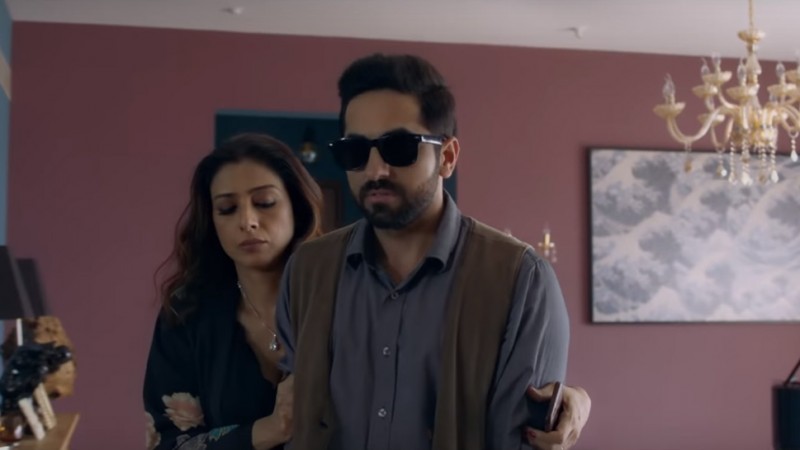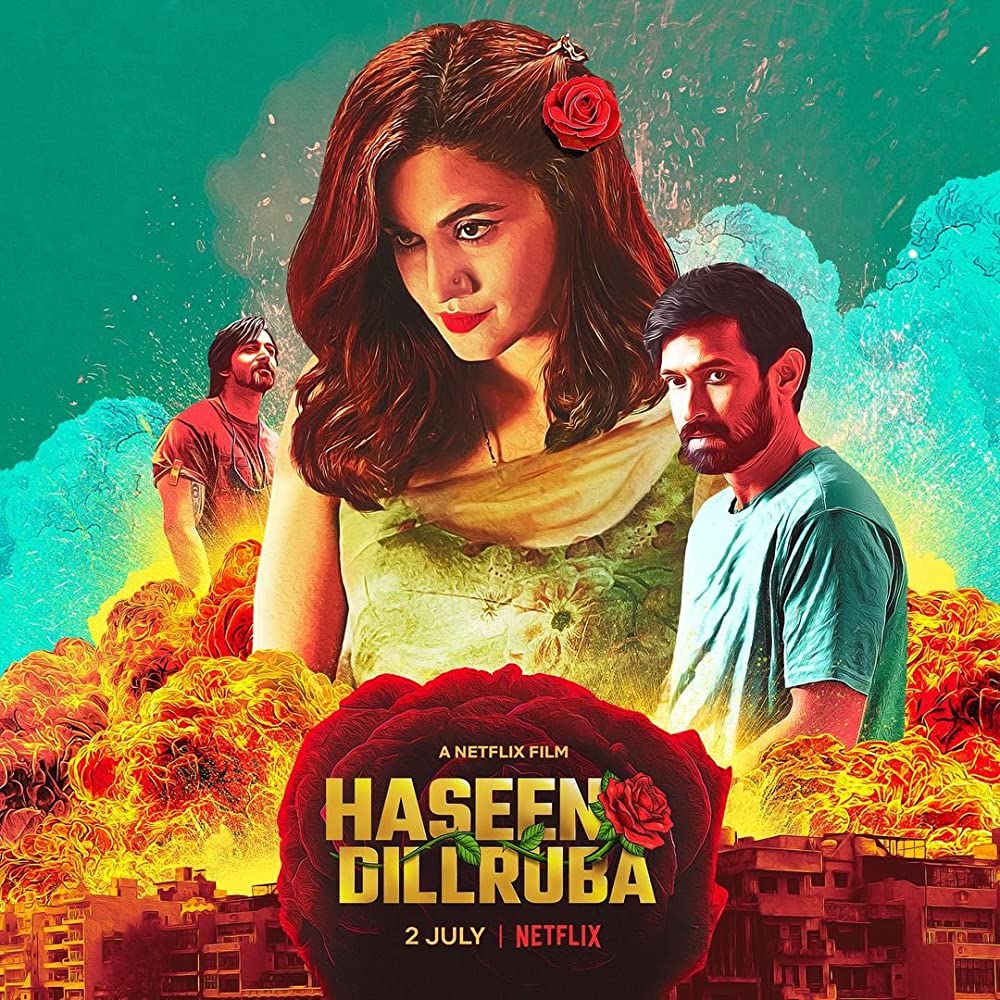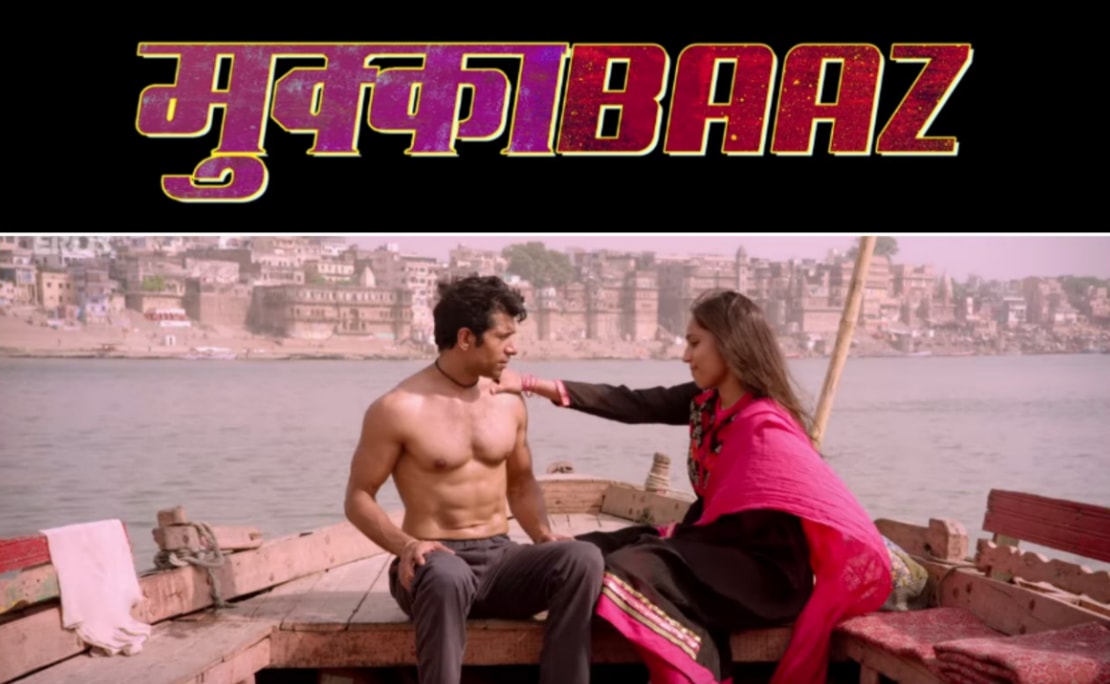Mammo
Mammo : Movie Review
5 stars out of 5 (Outstanding)
Story : Khalid Mohamed
Director : Shyam Benegal
Cast : Farida Jalal, Surekha Sikri, Amit Phalke
Hindi , 1994
You may very well picturize how a typical Bombay producer would have hacked to pieces the wonderful soul and structure of 'Mammo'. You may see and hear him having an attack of apoplexy whilst crying " Kyaa ?! The main characters are two old ladies and a little boy ?! You took the hero and heroine's mothers and cast them in entire lead roles ?! Pikchar ke release ke baad hum sab bhooke mar jaayenge ! And what on earth is a little boy doing in this frontline role ? Little boys do not exist so conspicuously in mainstream Hindi cinema - they usually live in parallel universes which start existing when the picture has ended and the hero and heroine are living happily ever after. And what's this #%^&#@!?! you have some moth-eaten ghazal in place of an item song ? Uff-oh!,Whatever did you do to distance Sunny Leone so far from us? And there's a bilkul thanda completely harmless porno magazine scene in place of the seethi-thaaliya montage where the kanyaa is about to be raped by the villain, but the hero jumps in to bravely resuscitate her outraged modesty, while female audience members weep cathartic tears in the aisles about feminism being heroically salvaged".
Dear Reader, if you are tired of masterpieces like 'Rowdy Rathore' but you still crave paisa vasool pictures which entertain you every minute while leaving out sex, violence , romance , political skulduggery and florid melodrama, then for that pure delicious slice of life , come home to 'Mammo'. It is a breath of fresh air, with a naturality and intimacy that feels very much like the life you lived yourself, in the world around us, and in the familiar confines of your home. India is such a rich country, with a limitless cast of real-life characters and situations but you see it onscreen so rarely because of the pundits in paragraph one. But every so often a film like 'Mammo' emerges, reminding us why something so simple is actually so rare.
The script-writer is Khalid Mohamed and the director is Shyam Benegal : two gentlemen who have relentlessly swum against the noxious tides that lap Mumbai's filmic shores. For the former, it has autobiographical shades but the film elides self-indulgence and maintains an impartial gaze. In the world of chefs you sometimes hear the refrain, " We let the ingredients speak for themselves". That's precisely what Mr.Benegal does, expertly helming the narrative vehicle to let the exquiste engine of Mr.Mohamed's script steer the way.
Amit Phalke's brilliant, pitch-perfect turn as the fourteen year old Riyaaz , is a reason by itself, among other strong persuasions, to watch the movie. Extracting compelling acts from child artistes remains so tricky, with so many efforts being either flat cardboard cut-outs, or goody-two-shoes Harry Puttar or the extreme Draco Malfoy. But young Phalke nails it right from scene one.
Watch his annoyed face from the second he opens the door to a visitor. His expression instantly , wordlessly says ' Who the heck are you and what are you doing in my home?!' Riyaaz then lugs heavy luggage inside as his Mammo naani (his maternal grandmother's sister) arrives in his Bombay flat. Mehmuda Begum's (affectionately called Mammo) husband has passed away, and his relatives have been wreaking hell on Mammo, for which reason she has left Pakistan where her husband had brought her to, during the partition of India. She has now come unannounced to the house of her sister Fayyazi and Riyaaz, seeking refuge, while smartly leaving the duration of stay an open question.
Riyaaz is a little firecracker ; peaceable, thoughtful and keenly intelligent when the going is good, and exploding when provoked. He lives in a compact Bombay apartment with his maternal grandmother and no one else, in a time period which is either the late nineteen-sixties or the early seventies. Sensing that the new arrival Mammo naani might stay on with them for longer than expected, he stomps up to his grandmother, keenly aware of the strong rapport he has with her while also being cognizant that she might not be entirely jubilant with accomodating Mammo. "Do you want me to become a duffer ?! Don't you want me to get first rank again ? How long is she going to stay here ?!" he angrily demands. When his grandma (Fayyazi naani) attempts to hush up his histrionics, he swiftly retaliates with verbals dismissals and a hiss-'n'- toss of his head. The next scene shows him tooth-brushing so furiously that we fear he's going to lacerate his gums.
Academically excelling, we see him often opening his study-books at home and even in the police station while awaiting Mammo's visa stamp, and we also see him 'bunking' school on multiple occasions (he's the type of unusual scholar who seems to do most of his studies outside the classroom). The short Riyaaz has a close friend in the form of tall lanky Rohan whose soft-mannered disposition is a welcome foil to Riyaaz's strong-headedness. With Rohan, Riyaaz is able to relax and chat about myriad things including Alfred Hitchcock (they sneak off hidden in burqas to watch the "adult picture" - 'Psycho' - in theater!) and Riyaaz's wish to be a writer. It's just as well that he is able to blow off his steam with good listeners because as we as we progressively see, a sense of deep hurt and betrayal constantly roils beneath his surface. He has been brought up from early childhood without mother and father, with a sudden shock discovery of a promised past throwing up even more trauma, while his Fayyazi naani who has painstakingly brought him up, spares him the ugly details of the past much to his resentment.
Farida Jalal is terrific as the vivacious title character Mammo, bringing to life a many-splendored persona that the better-known superstar actresses of her generation would have found tough to essay. Her ample frame and kind, warm face superbly channel a large-hearted physiognomy, and shoulders worthy enough to carry an entire wonderful film. Yes she's a busybody, from asking the taxi-driver his income to asking the police inspector about his family to swiftly gathering a whole little classroom of girls to whom she teaches the Quran, so much that she does not realize how much she's dominating the lives of Fayyazi and Riyaaz. But that's also backed up by true gumption and humane concern for others, as when she takes Riyaaz and wades into the slums to set right the alcoholic abusive husband of the maid (who else do you know who's gone to that extent?)
There's a remarkable scene in those shabby bylanes where Riyaaz, while discussing his writerly ambition, asks her whether she's really seen 'Hell' and she replies in the affirmative, while calmly narrating what she experienced during the Partition. For the uninitiated , we refer here to the partition of India to create the separate country of Pakistan in 1947, an act fostered by the evil British empire, and powered by the mistrust, hatred and irresponsibility of both Hindus and Muslims. Fourteen million people's lives were displaced - the largest mass migration, forced or otherwise, in human history and two million killed. Mammo in her brief telling of what she saw and felt, avoids any graphic depiction of barbarism, rather she simply narrates how people act when they are in extreme stress and grief. That expertly directed and exquisitely acted sequence, becomes with economy and aching sensitivity, an effective synecdoche of the Partition's horrors.
Completing the trio of fabulous performances is the thespian perfection of Surekha Sikhri in embodying Fayyazi. Calm, curmudgeonly, kind and assiduous, with an iron-clad sense of pragmatism, the slim matronly Fayaazi will strike so many viewers as the kind of no-nonsense senior lady they may have been acquainted with at some or the other time in their lives. Fayyazi captains her little domestic ship with an eminently sensible and cautious attitude, carefully looking after her grandson, fussing over the daily maid who hasn't yet turned up, deeply empathizing with a sentimental Hindi film, while falling asleep at a English pikchar. She shows a deep fondness towards both Riyaaz and Mammo, but when provoked , she will rain the most sizzling shards of punitive hell on both of them. There is a masterpiece of a "domestic violence" scene (which admittedly very few social workers will be compelled to take action over) where an enraged Fayyazi punishes Riyaaz in a sustained bout of hysteria while administering a colourful verbal thrashing to the intervening Mammo.
With its intimate detailing of the lives of characters with Islamic backgrounds, and comfortable coverage of everyday middle-class milieus, "Mammo" somehow brings to my mind the best of Iranian cinema by Panahi, Kiarostami and Majidi.But 'Mammo' has better actors and is able to state matters more directly, coming from a nation that is marginally more tolerant than Iran. Truffaut's '400 blows', with its unadorned depiction of a troubled boy, can well be considered a cousin of this film, but 'Mammo' is able to include a fuller fabric, with more than one protagonist.
Some aspects of this film's yesteryear milieu (which admittedly is not that far back from the present) seem so innocent and special, ensconced in an era when the world was a little more forgiving. On Riyaaz's birthday, when walking into school, he holds hands briefly with Rohan. It is a tender reflection of close friendship, yet in this day and age of over-smart over-knowledgeable kids, in a world where both kids and adults are constantly terrified of buggery and the fear of gays taking over the universe, such a simple warm gesture might not be allowed to take place. Afte college, when I visited a dear friend in Boston, we were walking along the city streets and I put a hand over his shoulder, imagine my surprise when he shrugged it off saying that we might be mistaken for gays.
Music in films is not Shyam Benegal's forte. He lucked out greatly with Rahman in 'Zubeida' but the nightmarish "song" he inserted in 'Kalyug' disturbs to this day. For 'Mammo' , Vanraj Bhatia is appointed. The background score, judiciously deployed to be fair, barely passes muster but the one and only song in 'Mammo' is one for the ages. Benegal, realizing the value of this, places it at a juncture that is like the exactly orchestrated move of a chess champion. "Yeh Faasle", sung with deep sepia emotion by Jagjit Singh, ranks one of the finest ghazals I've had the privilege of hearing, especially when seen with the video proceedings. It has the 'recorded' sonic quality of a prayer call from a mosque's minaret, but 'tis more sonorous, nostalgic and instantly melodic that any muezzin's call I've heard.
Dialogues by Javed Siddiqui are a study in Urdu of simple elegance, and reach their colourful acme when the ladies become beside themselves in a sea-side hotel [he takes this excellence a step higher in the prequel film 'Zubeida' (2001)]. This is not a lavishly budgeted movie but the cinematography by Prasanna Jain maintains a tidy aesthetic, complemented by Aseem Sinha's smooth editing.
SPOILER ALERT : The next two paragraphs are marked separate by asterixes :
*****
Though it will give away a sudden turn of events in the finale as alerted above (the actual denouement which comes later is a different scene - whether the denouement/epilogue is real or a fantasy, who knows ?), it is important to discuss the psychodynamics of a forceful event and one line uttered towards the film's last stretch. The authorities get wind of Mammo's overstaying in India and then suddenly swoop in to manually remove her and bundle her off in a train.
A man, who is part of that enforcing entourage, says "Why do these Pakistanis want to stay in India?". That remark betrays how little thought the man has really given to the question, and it engenders a whole essay, an encyclopedia, a library, nay whole millennia of reflection on why we are obssessed with religion and revenge rather than with humanity. Mammo's childhood, ancestral home, desire for permanent residence and the relatives sympathetic to her, are all rooted in India. But the "authorities" who pack her off, are not interested in knowing why she acts the way she does.
*****
For them it is more important to make default assumptions that people remain where their religion fits in neatly. The 1947 Partition of India as discussed above, and centuries of Mughal rule in the same country where Muslim rulers presided over a majority of Hindus, has created deep rifts and festering hostility betwen Hindus and Muslims in the subcontinent. Very few attempt to humanely address these complex wounds, and the majority are interested in easy "fixes" which don't really fix anything. It is by this way that the policeman's one-line remark resurrects an entire epic of massacred understanding, a Partition again for Mehmuda Begum.
Mr.Mohamed and Mr.Benegal thus accomplish a seamless blend of threads - individual, familial, societal, national - woven into an intimate skein. The characters here are all innately strong, but their lives have also been re-shaped irrevocably by past baggage which keeps weighing on their present and future. Mammo wants to return to live in India, but a strongly family-oriented lady like her much prefers to live with her sister and grand-nephew even if it means inconveniencing them in their hitherto undisturbed existence. Fayyazi and Riyaaz both like Mammo, as she does them, but the hassle of continually accommodating another person in their compact apartment and in their personal lives, is too much for them.
Practicalities thus elbow out roseate familial togetherness.The film does not gloss over this thorny reality, and depicts so many other day-to-day events in their lives with a ceaseless knack shorn of tedium or artifice.
It is a mistake to call this film a "little gem". It is big in its own way, a charmed world between cinema verite and nostalgia.
UPN
UPNWORLD welcomes your comments.










0 COMMENTS
WRITE COMMENT